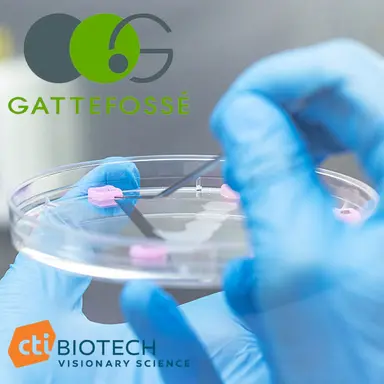
Gattefossé & CTIBiotech develop world’s first bioimpedance 3D bioprinted skin chips to link cosmetics lab testing to humans. The developed model that allows fast and non-invasive measurement of sebum production should improve the predictivity of in vitro tests of sebum-regulating ingredients.
Sebum is a complex lipids mixture secreted by sebocytes and deposited in stratum corneum for helping to the skin barrier function. Disruption of sebum production leads to common skin diseases, including acne or atopic dermatitis; it also contributes to the development of oily or dry skin and impacts both appearance and beauty of the skin.
Solutions to develop more efficient cosmetics still require more predictive testing ranging from lab data to humans. Success of lab-to-donor data is not easy and quite often fails because of no proper translational readouts.
Gattefossé and CTIBiotech therefore joined forces to develop a relevant 3D bio printed model integrating sebocytes for measuring non-invasive parameters in vitro as on real humans while at the same time giving laboratory readouts.
Bioimpedance (also known as bioelectrical impedance analysis) has been widely used to monitor our personal health and body composition and adjust diet and lifestyles accordingly. Using connected scales, Gattefossé and CTIBiotech used bioimpedance to evaluate changes in the local environment of a 3D skin model integrating sebocytes. Measurement of such a non-invasive electrical activity allowed us to follow in real-time the sebum production, in addition to laboratory readouts dealing with cellular, matrix and tissue development.
“Bioimpedance has …













